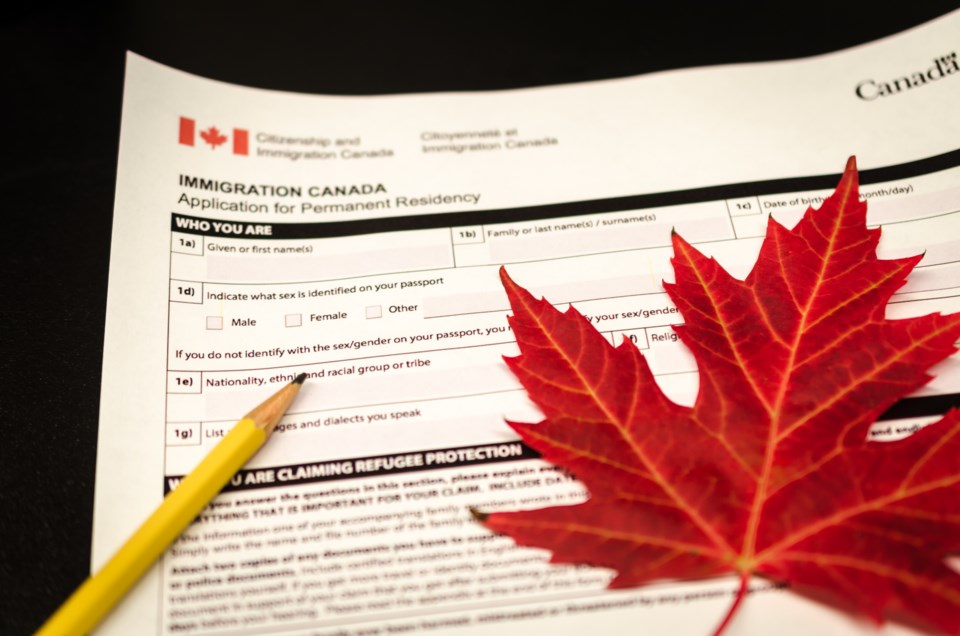Whether the parties in Ottawa have policy to back up their words or not, the number of immigrants to Canada has become more and more of a talking point in recent months, as cost-of-living pressures bite, housing availability gets worse and worse, and the economy struggles.
There’s a cynical equation informing government decisions on migration numbers that seems fairly widely understood, in that population growth equals economic growth—so when the economy isn’t doing all that great on a per-capita level, the numbers can be fudged with a greater immigrant intake so the gross domestic product number (the shiny one governments love to talk about) gets bigger.
Meanwhile, on-the-ground Canadians feel like they’re getting poorer. Economic datapoints and the word on the street suggest that’s what’s happening in
Canada today.
Inevitably, immigration has become a subject to discuss, and I’m glad we’ve finally come to it.
Rehashing failures in housing policy—which have created a sector that feeds off itself through speculators—is old-hat, and something we all seem well-versed on.
So, immigration.
A touchy subject on any given day, I myself am an immigrant, so I have to be very careful about what I say, lest somebody tell me I don’t need to worry about the discussion because I’m the “right kind of immigrant” in that distasteful, off-colour way that makes me cringe.
I know exactly what they mean when people say that to me (and many have in the six years I have called Canada home), but its inclusion in a conversation invalidates essentially everything on either side of its utterance—and that’s a damn shame, because their words are correct, but the meaning behind them is not (to spell it out, it’s to do with the colour of my skin and my country of origin).
Controversially, I agree with the statement, in that I am the right kind of immigrant: I met all the criteria the Government of Canada laid out before me before I came to Canada, before I extended my stay as a permanent resident, and before I became a citizen.
I am the right kind of immigrant because I did what I was asked to do to pass muster. I didn’t seek loopholes or shortcuts, I didn’t cheat the system or insist it owed me something, I didn’t ask Canada to do anything that made it more comfortable for me or my sensibilities—rather, I adapted to it.
In short, I came pre-packaged as “the right kind of immigrant” that the Canadian government was asking for at the time, and then I brought my money with me and made more while I was here. I also made the quota’s cut-off point in the years my various applications were being considered.
Canadians miss a huge opportunity to talk about immigration in a productive way if they succumb to dog-whistle politics and target specific groups of people for interrogation—on one side because of the racist undertones, and on the other because those undertones drown out legitimate discussion and unjustly empower those who would later shut down any and all discussion on the topic.
Stricter standards is a slippery slope, because the standards are already pretty clear. Very simplistically: grasp of one of the national languages, have enough funds to support oneself for a set amount of time, and a lack of a criminal history. These are acceptable parameters.
Yet, Canadians appear to be losing faith in the process of selecting who comes to Canada and under what circumstances, because the government is not doing a good enough job of convincing them the high immigration numbers are worthwhile.
Canada simply needs to cut the number it permits on an annual basis. “The right kind of immigrant” can always wait until the following year. Canada will always be an appealing country, in which people from all over the world are going to want to live; more than Canada could ever effectively allow to move here and maintain its baseline quality of life for citizens.
But just because someone wants something, doesn’t mean Canada has to give it to them.
Canada does not have to, and should never shut itself off from the world, but the social acceptability of 485,000 new permanent residents in 2024 is clearly questionable in today’s economic climate, let alone the number of temporary workers and students—especially when the government is explicit in saying immigration is important for the economic growth of Canada. That angle doesn’t cut it when Canadians feel like they’re getting poorer.
On top of that is the government’s laissez-faire approach to the problems it creates for everyone, welcoming hundreds of thousands of people eager to come to Canada, only to leave them to bear the brunt of the social unacceptability of the entire situation while shrugging and denying there is a problem.
Canada needs to reduce its immigration intake, it needs to do it now, and it needs to be able to do it in a rhetorically literate way that doesn’t pander to populist scapegoating.




